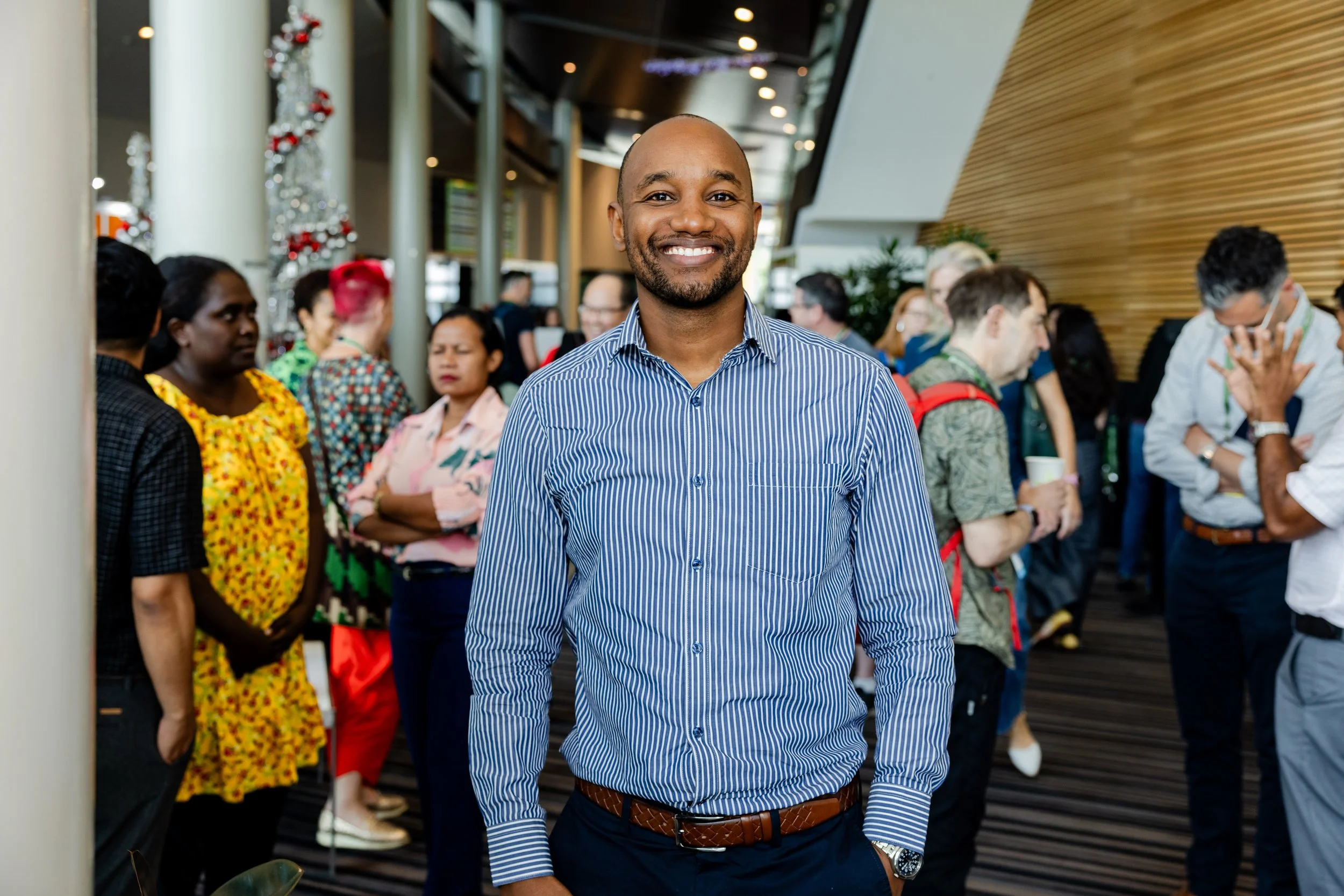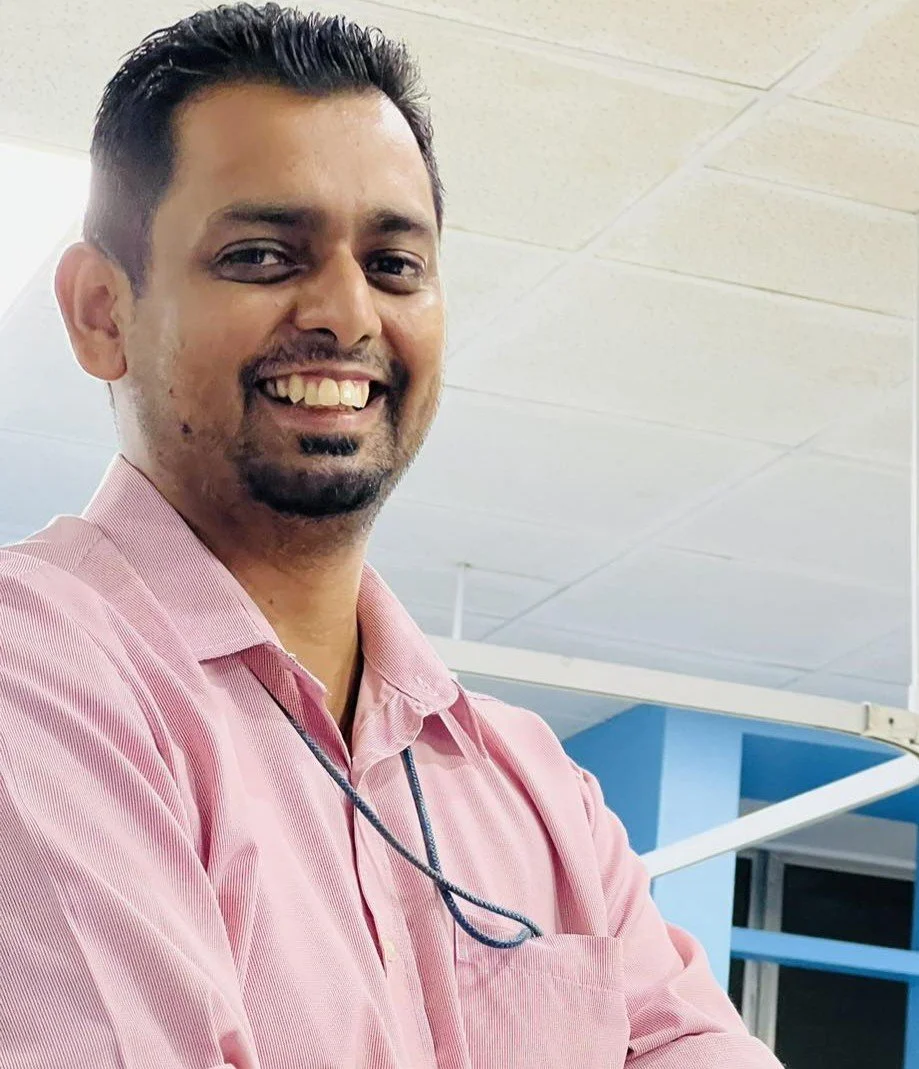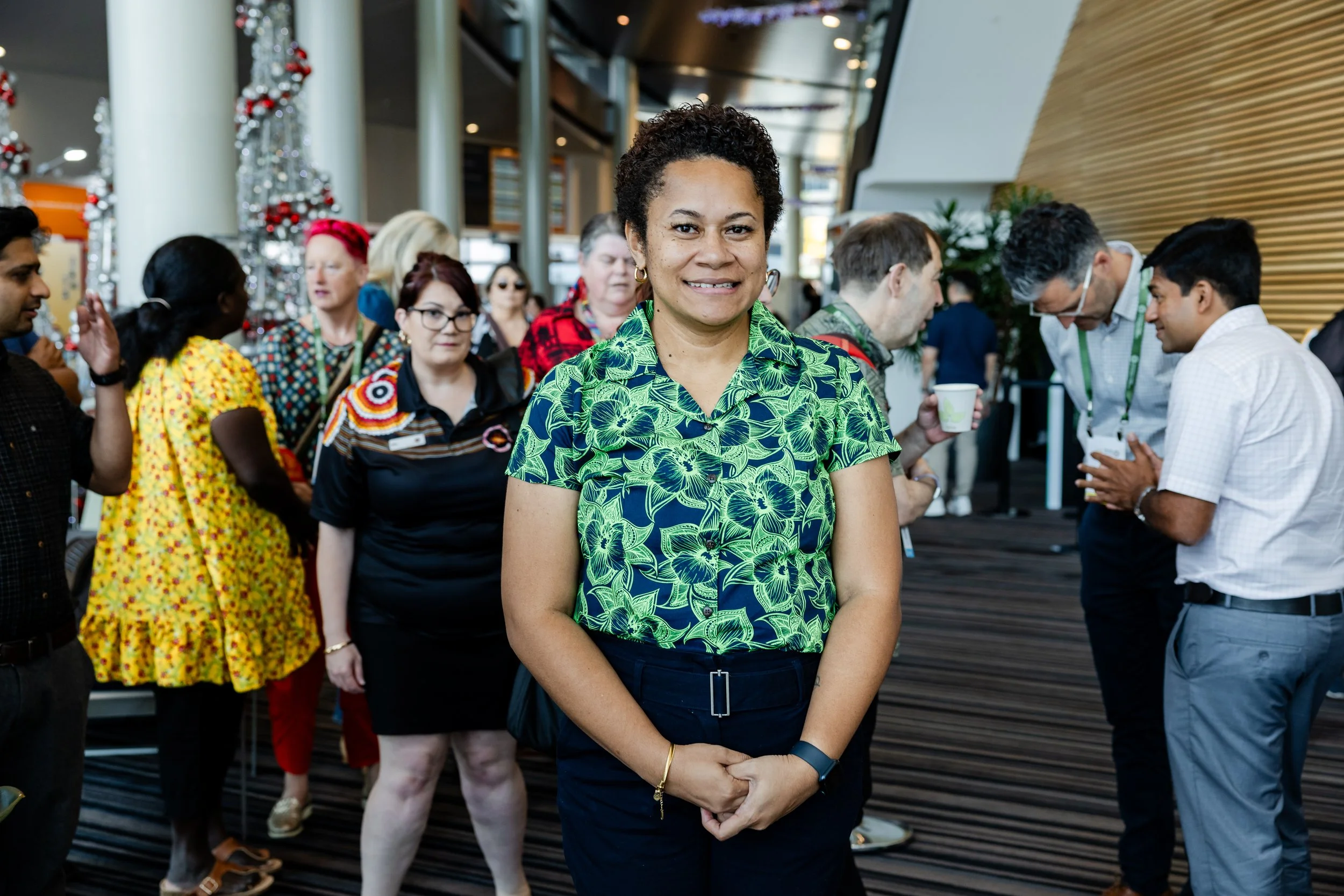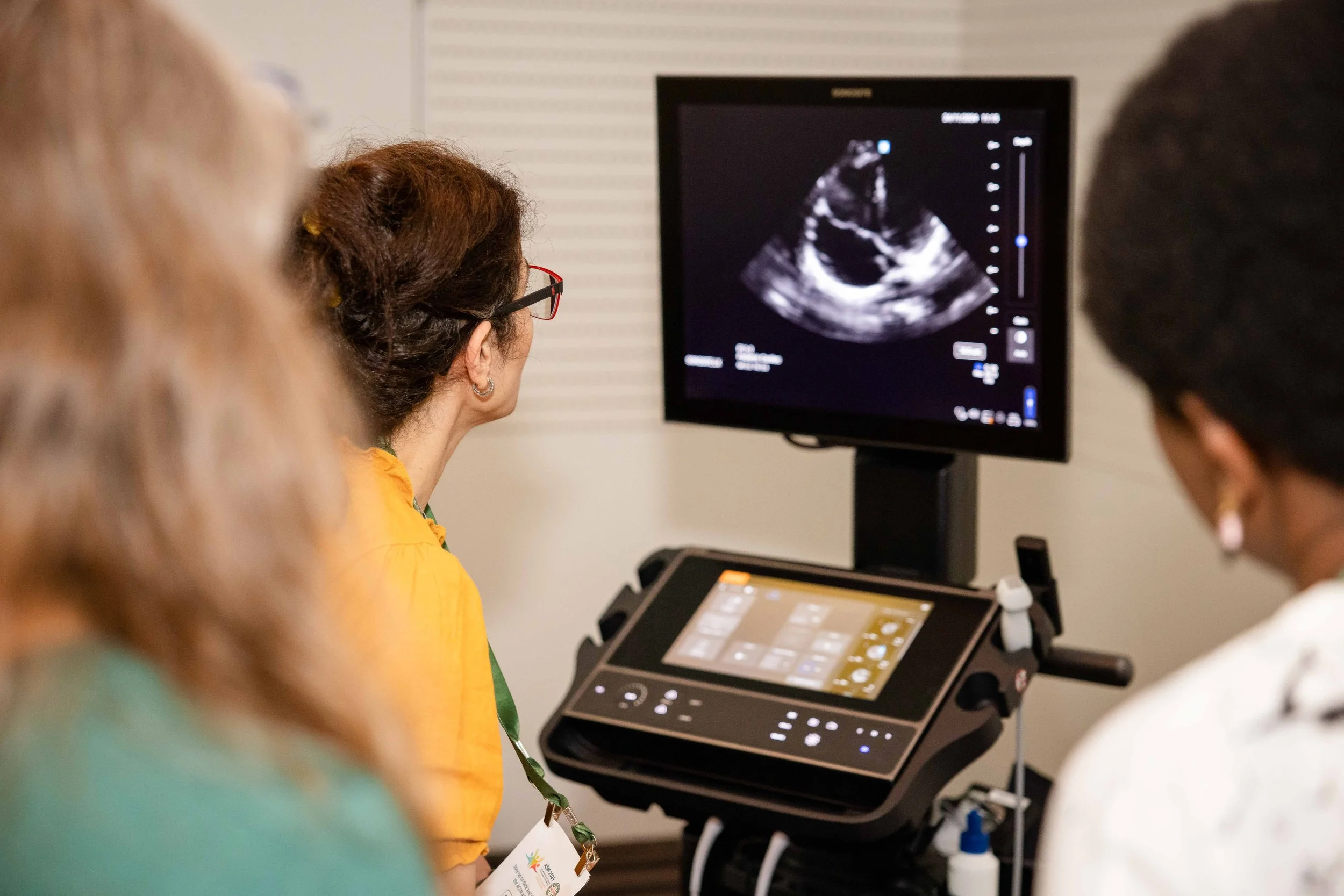GEC Scholarships creating change
Dr Mangu Kendino, 2019 GEC Scholar now serving as emergency physician and director for emergency medicine training at Port Moresby General Hospital, has words of wisdom to share with new scholars about the benefits of the program.
‘It changed my purpose quite a bit,’ International Affiliate Dr Kendino said. ‘It was definitely an exposure that I value very much.’
The growth of GEC
“It was definitely an exposure that I value very much.’”
The annual Global Emergency Care (GEC) Scholarship was first offered by the Australasian College for Emergency Medicine (ACEM) in 2011. Formerly known as the International Scholarship, the inaugural list of scholars featured in the 2011 Sydney ASM program were: Pratap Prasad (Nepal), Zaw Wai Soe (Myanmar), Fletcher Kakai (Solomon Islands) and Moana Tupou (Tonga).
At ACEM’s Annual Scientific Meeting (ASM) in November 2024, the number of the ACEM Foundation GEC Scholars invited to attend and deliver a presentation at the conference had grown to eight: Dr Fredrick Koha (Papua New Guinea); Dr Francis Sakita (Tanzania); Dr Julia Quintao Rodrigues (Timor-Leste); Dr Posing Posanau (Papua New Guinea); Dr Santosh Banstola (Nepal); Dr Salote Behr (Fiji); Dr Suren Perera (Sri Lanka); and Dr Sheena Sogavare (Solomon Islands).
ACEM defines GEC as a commitment to improving the capacity of low and middle-income countries (LMICs) to deliver safe and effective emergency care and recognises that increasing the knowledge, networking opportunities and professional recognition of doctors or other emergency care health professionals from those areas is a positive way to help address health disparities.
The GEC Scholarship exists because ACEM recognises that increasing the knowledge, networking opportunities and professional recognition of doctors or other emergency care health professionals from LMICs is an essential step in reducing health disparities experienced in these countries.
Making connections
Dr Kendino credits the Scholarship with forging lasting connections developed through a rewarding program including hospital visits, hearing from senior FACEMs, attending the ASM, and fondly-remembered bonding activities such as breaking out of an ‘escape house’ in Tasmania.
‘It’s very different when you can put faces to names, emails do not do justice to interactions we have with each other,’ she said. ‘It’s a close-knit group and attending as a GEC scholar you meet many of the FACEMs who have had varied involvements and achievements across many countries in different continents across the globe. Essentially, you foster relationships in the social sphere and that just makes it easier to continue work and excel in many goals in a professional sense.’
This sentiment was shared by 2021 GEC Scholar Dr Deepak Sharma, a Specialist Emergency Physician and Chief Medical Officer at the Colonial War Memorial Hospital (CWMH) Emergency Department in Suva, Fiji.
‘It was very valuable,’ Dr Sharma said. ‘I attended the ICEM and ASM combined Conference in 2022, and it really gave me the opportunity to build networks with emergency colleagues not only from Australia but also from around the world. I had the opportunity to present as well, and this boosted my public speaking.’
The newest GEC Scholars also appreciated the opportunity to make connections and tap into networks.
Emergency physician Dr Posing Posanau, who had made the journey from Port Moresby General Hospital in Papua New Guinea (PNG) to accept the 2024 GEC Scholarship, said, ‘as we progress in our society, it’s important to establish connections so that our trainees coming up get to expose themselves to the latest knowledge and education’.
Dr Frances Sakita, based at the Kilimanjaro Christian Medical Centre in Tanzania in east Africa, has been an emergency medicine specialist for six of the 10 years he has worked in medicine.
‘I grew up in a family where my parents had never been to school,’ Dr Sakita said. ‘But growing up, my mum said, “One day you are going to be a doctor”. There was no role model for me to look up to in that way because I am the first doctor in the clan.’
For him, being one of the eight GEC Scholar recipients for 2024 was a ‘great honour’.
‘I am getting the chance to meet different experts from all over the world,’ he said about his trip to the ASM. ‘As I was coming down on the plane over the beach in Adelaide, it is so beautiful, it looks like home. The warmth and the welcome I received with my colleagues has been amazing’.
‘The keynote speech by the US doctor was amazing,’ Dr Sakita said. ‘But being here is not just for me. It is for all the other people who stand behind me in the department. I am not here just for me growing, but for connections and opening doors for people behind me – and I guess that’s what life is all about.’
Learning opportunities
This chance to connect turned into a practical learning opportunity that Dr Sharma, an International Affiliate and Supernumerary Global Emergency Committee (GECCo) member, took back with him to Fiji.
‘While networking and speaking with other clinicians and colleagues, I was also able to connect with other short course coordinators and learn from their experiences. It also gave me an opportunity receive my ACEM International Affiliate certificate in person in 2022,’ he said.
‘The best takeaway I had was with navigating through the challenges of running workshops and teaching in the ED. Upon returning I have begun running some Service Registrar's teaching sessions and got our trainees to start teaching on short courses we facilitate from the ED.
‘After participating at the ASM/ICEM, I have learnt to appreciate my work in the ED and also understand the similarities in what happens in a well-equipped ED and our EDs in Fiji, together with the differences and challenges that exist.
‘More importantly, participating at the conference in 2022 taught me that my work matters and helps in providing better emergency care,’ he said.
“The best takeaway I had was with navigating through the challenges of running workshops and teaching in the ED.”
Dr Kendino said there were many key learnings from the ASM she attended in 2019. One that stood out and had a lasting impact was viewing emotionally driven presentations about disaster management and response in Aotearoa New Zealand. These would soon prove to be invaluable. ‘It was something that I am thankful I had the opportunity to attend and gain experience in because, of course, nobody knew Covid was coming,’ she said. ‘It allowed me to put many of those learnings into practice.’
Sharing challenges, sharing ideas
In his own ED at Port Moresby General Hospital, Dr Posanau – who is also President of the PNG Society for Emergency Medicine – said there are currently nine consultants and 14 registrars in training. ‘In a 24-hour period, we get to see about 200 cases presenting, with the support of approximately 50 nurses,' he said.
Dr Sheena Sogavare, of the National Referral Hospital in the Solomon Islands, did some of her medical training in PNG after beginning her emergency medicine career in 2017.
‘Emergency medicine is not that developed in the Solomon Islands,’ Dr Sogavare said. ‘My boss was one of the first emergency physicians in the Solomon Islands.’
She said one of her favourite things about working in emergency medicine is the feeling ‘of helping the patients’, but admits that can sometimes be challenging, ‘in terms of supplies and equipment’.
To help counter those challenges, Dr Sogavare said, ‘I see it as a really big honour’ to become a GEC Scholar and added that the knowledge she brought back to her ED and its team had a tangible impact.
‘The honour is not just for me – but for the people back in my home. Everything that I gained here is not for myself. When I go back, I am representing all the registrars in my department and helping the patients in my community,’ Dr Sogavare said.
Dr Salote Behr is an emergency physician and head of the ED in Labasa Hospital, one of three major hospitals in Fiji.
‘My emergency department has a 14-bed capacity. We have 10 doctors, and I am the only emergency doctor,’ she said. ‘The only one and the first one. I moved to Labasa Hospital about three years ago. Before then, there was another emergency doctor, but she was not a specialist.'
Dr Behr said that, since bringing her knowledge and skills to the hospital, she had already noticed a big change – something she says will be enhanced after her additional learnings and networking as a GEC Scholar.
‘I am keen to get as much knowledge as possible,’ she said. ‘This is life-changing for everyone in the hospital.’
Dr Behr said she became an ACEM member in 2022 and appreciated the access to resources her status as an International Affiliate gives her.
‘I’m really grateful for that collegial support from fellow ACEM colleagues and am looking forward to continuing the emergency care in my city.’
Dr Behr said the launch of Fiji’s first national standards guidelines in June 2024 was an ‘important celebration for us' – and something she hopes to build on with the experience of becoming a GEC Scholar.
‘I am committed to staying in my community,’ she said. ‘The scholarship means a lot. I am really honoured. I didn’t expect to come this far. Just being able to come here and network with other people is so valuable because the others in my group of GEC Scholars share some of the same challenges, so it’s great to share ideas that can help us all.'
Putting new knowledge into practice
Since her return to PNG, Dr Kendino also took on the role of Chief Medical Officer for the national St John’s Ambulance Service and has published research papers in collaboration with FACEM colleagues Megan Cox, Rob Mitchell, Colin Banks and Georgina Phillips. She said the value of the GEC scholarship for the locals in her area ranged from better patient tracking, more robust triage systems and integral emergency medicine care indicators, to implementing ‘reward programs, recognition of staff quality and other small things that bring a department together’.
“‘It’s a close-knit group and attending as a GEC scholar you meet many of the FACEMs who have had varied involvements and achievements across many countries in different continents across the globe. Essentially, you foster relationships in the social sphere and that just makes it easier to continue work and excel in many goals in a professional sense.’”
‘I saw (in Townsville Hospital), when spending a week there with the support of my hosts Lisa and Colin Banks, that they had a nurse educator whose dedicated role was conducting nurse education and training,’ she said.
‘Upon returning, along with my department coordinator, we made sure we supported our nursing education programs and made them feel involved. This same Nurse Educator (Travis Cole) would later travel up to PNG and assist us to facilitate a Leadership training that brought together nurses and ED leaders across the whole of PNG. This was supported entirely by FACEMs and the DFAT.
‘That for me, was a full circle moment. To have a nurse educator I had come to see and know of, now travel to PNG and invest this same sort of support and see it in action. And I am confident that these same principles can be applied to EDs across PNG and other developing countries.
‘So far, now, we have many short courses which we advocate to put nurses in training programs. In the past five years we have supported many nurses through train-the-trainer programs so that nurse-led nurse training can be achieved. It reduces segregation so that nurses do not feel limited or disempowered in any way.’
‘As GEC scholars, we travel from LMICs so there is evident disparity in the level of healthcare from where we come from to what we go and visit, but as you see and witness the executions of these operations and systems in reality this drives the determination that we can also strive for better.’
Face forward and encourage our emergency physicians
Dr Kendino said mentoring and instilling hope was vitally important for the future of emergency medicine.
‘I would like to continue to mentor the emergency physicians who take up roles in the tertiary hospitals across the country,’ she said.
‘The biggest gain for myself is being in a place where I can witness this and be a part of the changes and implementation of systems and strategies in my hospital and to continue to share it. Face forward and encourage our emergency physicians.
‘We still have a lot to achieve as a collective, global community of emergency care providers. I do hope that the gains that the GEC scholarship program makes will be to foster passion and continued confidence in emergency practitioners who have the privilege of attending as a global scholar. Any learning and exposure (as small as it may be) has the potential for maximal impact.
‘This is the value of the GEC, the committee and the whole concept: we know each other, we have a common goal, and we won’t forget emergency care training so we can start filling our EDs with specialists who lead a team of very dedicated nurses, clinicians and other support staff.’
The GEC Scholars program is possible thanks to the ACEM Foundation. Learn more here
The 40th ACEM ASM will be held from Sunday 23 November to Thursday 27 November 2025, at the stunning Gold Coast Convention & Exhibition Centre. Register here












